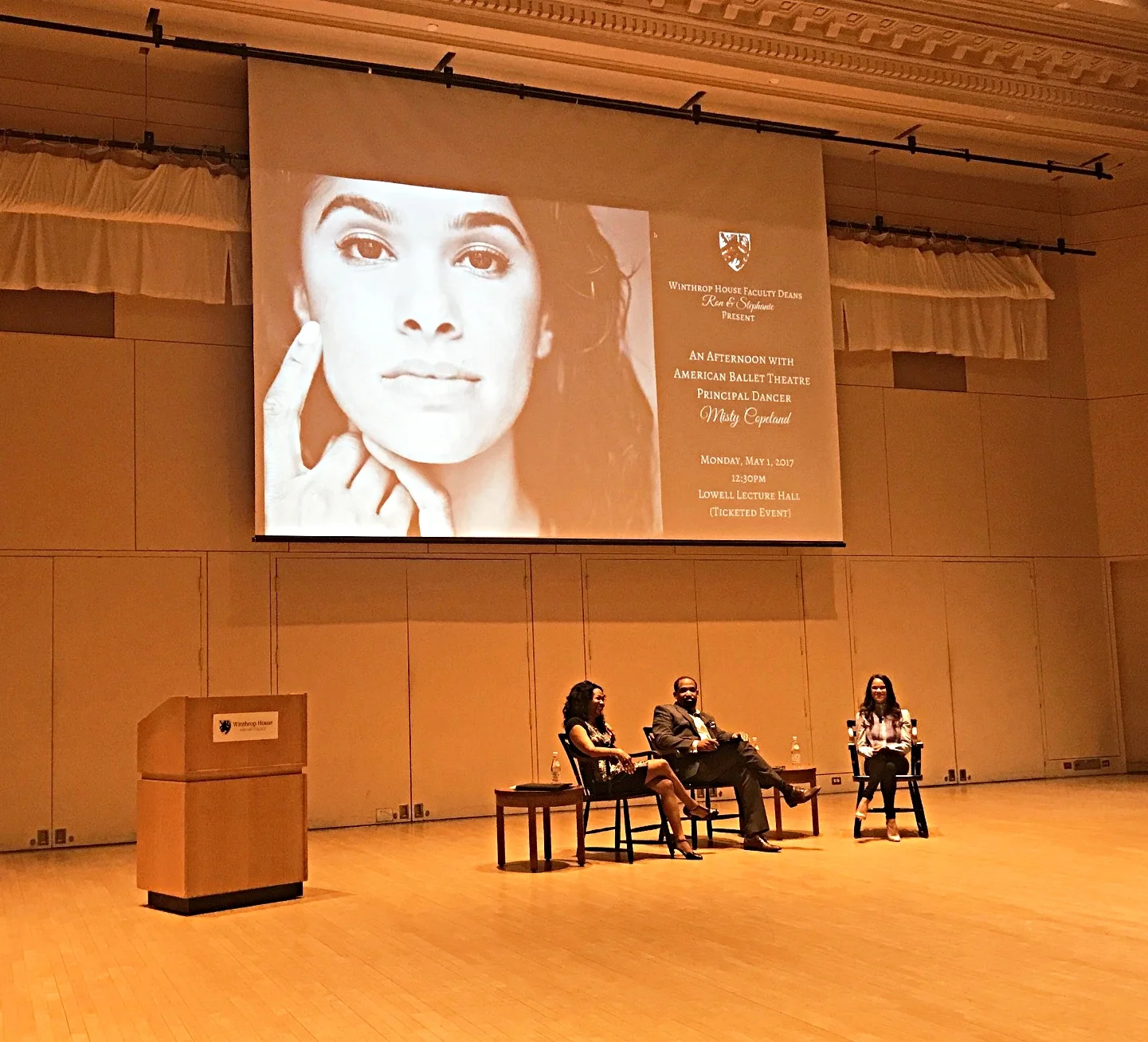Misty Copeland at the Lowell Lecture Hall, Harvard University
Misty Copeland - on Empowering Change
It's now almost been one year since I retired - one of those funny things where it seems like just yesterday I was waking up every morning and heading over to 19 Clarendon to rehearse whichever production was coming up next at the Opera House. Now, I wake up every morning and head to Harvard's Faculty of Arts and Sciences for an entirely different daily regimen.
Staying in a city where you have been identified a certain way for a decade, can be a challenge. However, working at Harvard, I am lucky to be at the helm of a seemingly limitless supply of resources, talks and events - it is a world I could never have been immersed in as a professional dancer with Boston Ballet.
That time I found out I got a job at Harvard...
One such resource was presented by the Winthrop House Deans and The Harvard Dance Center - a panel discussion featuring the empowering and inspiring, Misty Copeland.
Now a principal dancer with American Ballet Theater, Misty climbed her way up from the Studio Company over the past 17 years, fighting some incredibly institutionalized odds. She now has a full blown celebrity career, being named one of Time Magazine's 100 Most Influential People in 2015 and having just come out with her own book, 'Ballerina Body: Dancing and Eating Your Way to a Leaner, Stronger and More Graceful You.'
One of the things she said during the panel that stood out to me most, was the importance of an 'external network'. As one of the only African American dancers at that level, Misty tells us she survived, and thrived, as a factor of her connections with other successful and confident women. As she said, it was important to 'see success in someone who looks like me'.
The ballet is a world of mystery, passion and beauty. It's whole purpose is to bring audiences on a journey away from their daily lives, to paint the picture that perfection can exist.
This is the illusion. It's important and magical. But it denies ballet an important part of its potential. Some dance scholars of late have been concerned about the future relevance of this strict art form in a world that is changing so rapidly.
Listening to Misty talk about her experience and the way she negotiated her way through countless barriers to become who she is today reminded me of that potential. Ballet freed Misty, it took her from living in a motel with her mother and her five other siblings, to the very vestiges of artistic prowess. It 'gave me a voice without having to speak'.
Dancers like Misty, whose trials and successes shake the status quo, present the true argument for continued expansion and relevance of this particular art form. Greater diversity, both in terms of the dancers themselves and, as has become an increasingly important topic, the positions of visionary leadership, is a must.
As I continue to chart my transition away from the stage, it's talks like these and individual artists like Misty and other former colleagues from Boston Ballet who remind me that there is much to be gained from dance, not only for the art form itself, but for the rest of society at large.
I am very happy to announce that I am a part of this empowering conversation. In June, I will be presenting my own work and thesis on female leadership in major US Ballet companies at the 2017 Female Athlete Conference at Babson College in June... more on that later - stay tuned for further details!
*Special thanks to Winthrop House Deans Stephanie Robinson and Ron Sullivan Jr. for hosting - this cross-disciplinary discussion is so important to truly diversified advancement.


